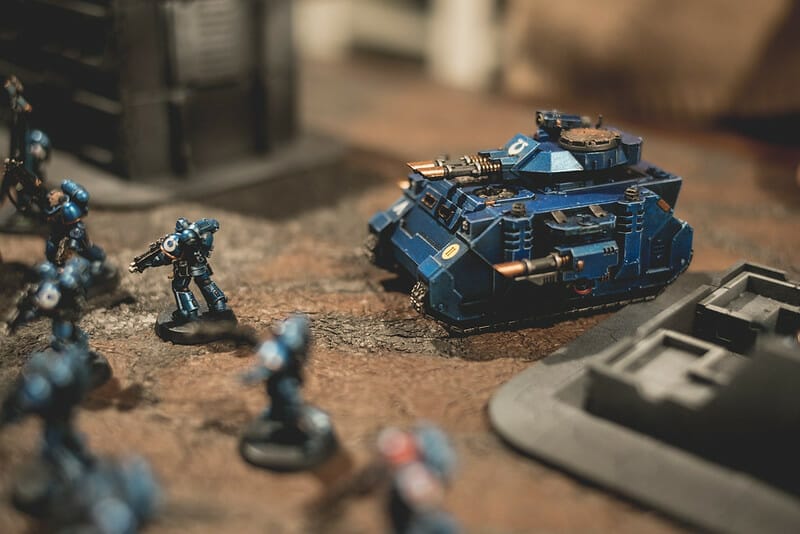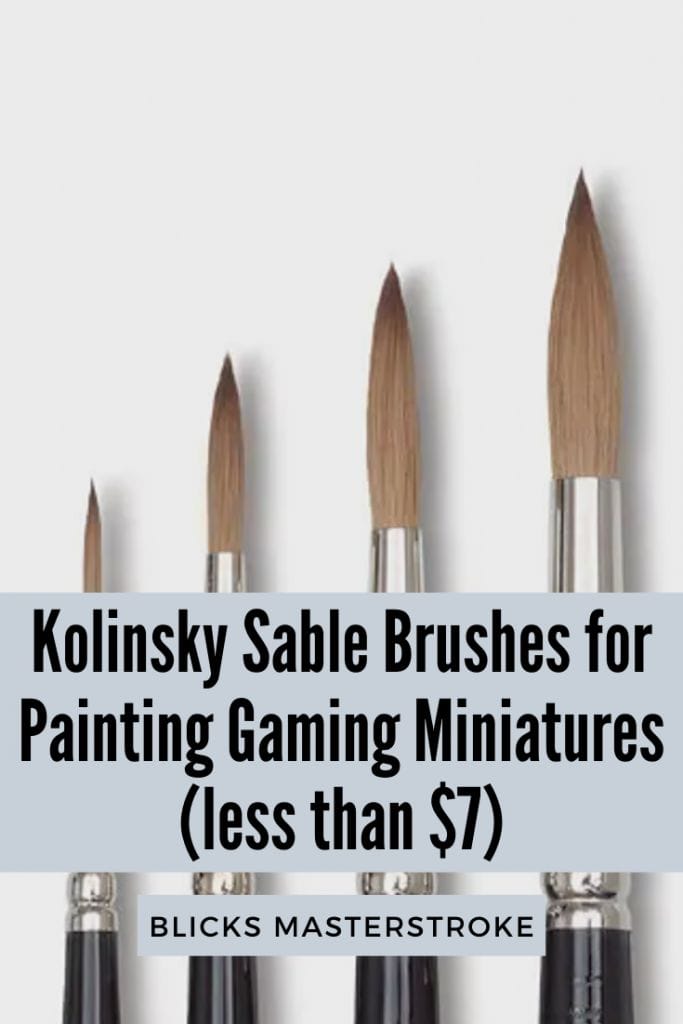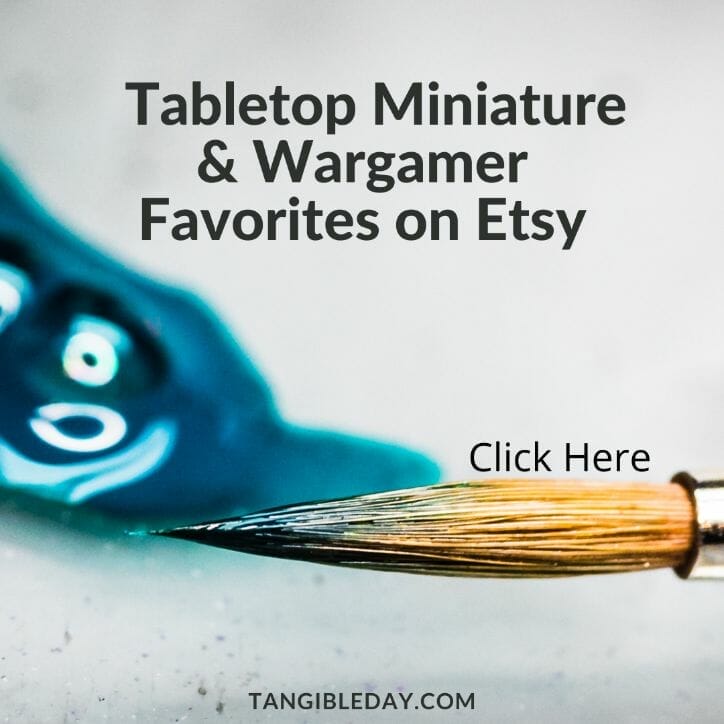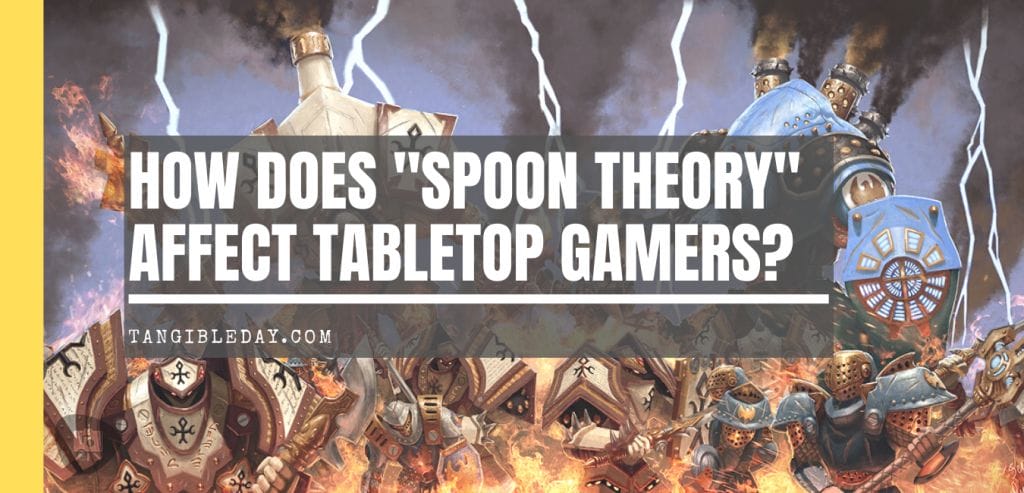Do you ever get tired of playing tabletop games? Not bored, tired and exhausted. “Spoon theory” describes the energy depletion you may feel due to underlying chronic illness or other underlying issues. But, spoon theory may also be a useful way to describe why intense gaming situations may drain a player’s ability to perform over time. Curious to know more about “spoon theory” and how it may apply to you? Keep reading!
In this article, I try to apply how spoon theory applies to the tabletop gaming environment, e.g., wargames, boardgames, or other types of fairly-involved games where people play competitively or cooperatively.
- Spoon theory, in its most common usage, is a metaphor that uses spoon utensils to describe a disability due to energy drain from a variety of factors, including ego depletion, fatigue, and other stressors related to chronic illness.
- As a neologism (or newly coined word), “spoon theory” explains the reduced amount of mental and physical energy available for activities of living and engaging in productive tasks
- For a competitive tabletop gamer, or anyone who plays miniature wargames, feeling mentally and emotionally-tired or brain-drained is a common experience
Legions of people call themselves “spoonies,” connect on social media as #spoonies, use spoon theory to explain their chronic disease limitations, and plan their days around the number of spoons they have when they wake up.
WebMD – Spoon Theory
Are you a “spoonie” gamer? Even if you’re not, you can still use the idea of spoon theory to understand the nuance of how the intense immersion and stress of competitive gaming can affect you.

Continue reading to see how spoon theory may help describe your experience or those in your local tabletop gaming community.
<Disclaimer: I am not a medical professional>
What is “spoon theory”?
Let’s start at the top.
Spoon theory describes the idea of limited energy. It’s like the mana energy that a D&D mage uses to cast magic. Not only are spoons limited, but when you run out, the fun is over.
The idea of spoon theory revolves around the literal descriptive use of kitchen spoons or eating utensils (source).
Sitting in a café, Miserandino goes on to explain how she gathered spoons and used them to represent finite units of energy.
Healthline.com
The theory helps describe the reality of living with chronic illness or other disorders to deplete your capacity to perform normal everyday activities.
Chronic pain, for example, as a result of an autoimmune disease will often be used in spoon theory.

How does spoon theory describe a person?
Energy for us is limited. At a certain point, usually, at night right before bedtime, we’ve exhausted ourselves and ready to hit the sack.
But, for those with underlying illness, the energy reserves are lower. There is only so much you can do in a single waking day. And, many things control how much energy you have, including stress levels, how you’ve been sleeping, and your pain.
In the story by Christine Miserandino (whose blog is no longer active), she describes how her energy reserves drain during a single normal day (you can read about some more of it here).
To do so, she describes to her friend using spoons (they are talking in a cafe) as a representation of energy how they disappear with each task or activity. Ultimately, by the end of the day, Miserandino could no longer do as much as she planned.
In short, the time spent on any activity in each day is precious, because there are only a few spoons an individual has the luxury of spending.
How does spoon theory apply to tabletop gamers?
“Energy” or spoons are limited by many things, even playing games.
On any given day, you may go about doing certain things, and each time you perform that task, you drain from your spoon reserves.
Are your spoon reserves limited?
By the end of the day, you may not be able to perform the activities you want to. That also means not having the energy to do things that are fun.
You’ve drained your spoon reserves.

Some people have very limited spoons even for gaming, and can therefore only spend so many. They can either work their day job, or play at the nightly game club meetup.
Not both.
Some of you may already realize you fall into this category of lacking the “spoon energy” to play games during weekdays.
You don’t have the luxury of spending spoons on random non-essential things.
- Whether you are competitive (or a casual) player, and if you’re a spoonie (someone who is strongly affected by the idea behind spoon theory), then you may expect that the longer it takes to play a game, the less capable or immersed into the game you will become.
In other words, as a tabletop gamer, the idea of limited energy impacts your performance the longer you play.
Are you someone who plays a lot of intense boardgames or wargames?
If you enjoy the intensity of competitive games, you’ll understand the brain drain that spoon theory describes.
When I first heard about spoon theory from a friend, I was intrigued.
Spoon theory describes in more universal terms the phenomenon of how person’s mental, physical, and even emotional state deteriorates when faced with intense periods of stress.

Yes, even in gaming situations.
- A person who has chronic pain tends to be less physically active than a healthy individual
- In a similar vein, someone who has low spoon reserves, or has depleted them through exertion in a day’s activity will also have less physical capability to enjoy other activities, even if they are for “leisure”
The cool thing about spoon theory is that is helps describe in a tangible way the human experience of living with an ongoing adverse condition.
Extending this description, perhaps it is also useful to use “spoons” to explain how a person feels when they are placed under the duress of gaming when they have limited internal “energy reserves”.
Ever try to play a competitive game of Warhammer 40k or Warmachine and Hordes after a grueling 8-10 workday?
Yup, you may know the feeling.
The dice blur; the numbers don’t add up. And, damnit, I forgot to feed the carpark meter.
Why does playing tabletop games reduce “spoons”?
Okay, let’s really apply spoon theory to the miniature tabletop gamer.
Other websites may speak more broadly to those with diagnosed chronic illness, and their daily lives; but spoon theory seems like it could apply in more specific situations, too.
Enter the tabletop gamer.
To play a strategic board game or miniature wargame, you need good insides–constitution and mental acuity.
But, you need more, actually. You need some level of emotional control, because out-of-control emotions can over-ride logical, good decision-making processes.
When you’re seeing red. You are already blind.
It takes quite a bit of mental and emotional energy to stay focused in a tabletop miniatures game. Maybe you young folk don’t think so, but play and live long enough, and you’ll see what I’m talking about.
Some games are more intense than others. Certain tactical games take a lot out of you to play. They suck up all the bandwidth in your head.

I find that the more tactically oriented games, the ones with more book-keeping especially, draw upon your spoon reserves the most.
Games that drain the most “spoons” need you to engage a lot with the 6 following attributes needed to play a tabletop game:
- Memory
- Spatial ability
- Focus, e.g., avoid or filter table talk
- Analytics or logic
- Risk management
- Emotional turbulence
You’ll find that in any given situation where you’re required to engage in multiple cognitive tasks simultaneously, you get more and more immersed.
And, perhaps this is part of the fun….
You get lost in the challenge of maintaining all these operational things in your head during a tabletop game.
But, it can all go south when you run out of spoons.
How does losing too many spoons affect me as a gamer?
Anger, sadness, or depression are common negative symptoms of using up too many spoons.
For these reasons, a person who knows they are a “spoonie” must carefully ratio their activity. They have to pace out their energy expenditure.
The same goes for a gamer who knows they get tired from playing too long (even if they are having fun and enjoying themselves). At some point, your spoons run out and you lose the capacity to “being normal” for a while.
As we know from biology, when a person is pushed into a “flight or fight” mode, an individual pushed to their exerted limit will go into a defensive mode.
Some handle and cope with this depleted state better than others.
But, we can kind of predict what will happen when a person loses their spoon reserves below a certain threshold.
An individual will not be able to engage well with the 6 attributes mentioned above: memory, spatial ability, focus, logic, risk management, and emotional turbulence.

What specific problems will I experience when my spoon reserves go empty?
As a result here’s what happens to someone who have run out of spoons (according to spoon theory and some personal deduction):
- Forgetful – you become forgetful. What turn is it?
- Less spatial ability – have you lost some of your ability to see where you placed game pieces? How did you let that sniper unit get behind your deployment line?
- Easily distracted – is the room suddenly more noisy? Are the people speaking around you getting on your nerves as you switch between their irrelevant conversation and your train of thought?
- Irrational decision-making – why did I just shoot that armored tank with my space marines using bolt guns, when I had a perfectly good railgun inches away? Maybe I shouldn’t have forfeited that piece…for nothing, gah!?
- Failure to manage risk – was placing my high-value unit this close to the enemy lines necessary on this turn?
- Losing your temperament – why am I so angry!? My opponent is so annoying… why are they taking so long and asking me all these questions about rules and stuff? Come on!
Has any of these things happened to you during an intense tabletop war game?
Maybe a tournament went a few hours too long and you started making serious mistakes turn after turn, and you’re not sure why.
What about anger and losing your temper? I’m sure you’ve seen that too.

What factors control your number of spoon energy-units?
Well, for starters, as we’ve already mentioned, chronic illness or underlying conditions with your health can severely limit your spoon reserves.
More than that, some of these health conditions can also affect your ability to regenerate your spoons. It can take you a lot long to replenish your well-being than a person without your burdens (source).
Here are other things that can affect your personal spoon count:
- Age
- Sleep
- Underlying illness
- Stress
- Coping mechanisms
Besides to your internal spoon count, you also have to account for the amount of spoons you spend per activity.
And, everyone spends different spoon amounts for any given activity.
For example, I know it takes a lot more energy for me to do things I don’t enjoy like laundry, or working on my tax paperwork.
Bottomline: you should be aware of your total spoon expenditure and pace out your work-life balance so you, well frankly, don’t lose it.

When does spoon theory affect a tabletop gamer?
As you play a game, especially a more competitive game, you spend your spoon energy reserves.
You only have so many spoons and, so can only dedicate to playing so many games.
Be realistic.
As time passes, you weaken your ability to play well. And, all the effects of spoon depletion will begin to emerge.
If this sounds like you, you are a gamer who needs to acknowledge their limits.
Don’t add more stress to yourself (or your fellow gamers around you) by playing intense tabletop wargames or boardgames beyond your limited reserves.
What tabletop miniature games or board games take the most “spoons” to play?
I’m totally going to miss a few (…a ton), but here are some examples of games that can really drain your limited spoon reserves.
In general, games that have a lot of book-keeping, or those that requires focused, drawn-out attention, tend to have high levels of involvement that drain spoons quickly. These games may include:
Of course this will vary between people and personalities. Some players actually may feel energized by playing games like these (who are you?!).

How do you increase your spoon reserves to be a more competitive gamer?
According to spoon theory, you have only so many spoons to spend during a period of time.
You have to pace yourself.
If you’re wondering is there are things you can eat, drink, or do to enhance your ability to play games better, check this out:
- Drugs like Ritalin can enhance chess gameplay play performance (source)
- In chess players, taking modafinil boosted performance by 15%, ritalin by 13%, and caffeine by 9%. The placebo, as expected, didn’t do enhance chess player performance (source)
- The researchers believe that cognitive enhancers were helping players perform more mental calculations and make better moves (source)
- Researchers think that these drugs slowed down how quickly people played, which helped them make better decisions (source)
The last point is the most interesting.

Taking these drugs actually made people slower in playing their games.
- Drugs helped people focus, use better logic, and were less impulsive
Maybe, we can apply this information to help us perform better at gameplay without the use of drugs.
Just maybe, this works in reverse.
Here’s what I mean. To maintain your spoon reserves:
- Slow down.
- Pace yourself
- Take breaks
READ MORE: ARE YOU SUFFERING FROM GAMER BURN OUT?
What does the published literature say? Would doing these things work for you?
It seems like a good strategy for “spoonies” (i.e., people living with chronic pain).
How can spoon theory help you, generally?
As a concept, spoon theory describes how much energy you have.
As a term, spoon theory empowers you with a way to be honest with yourself. It is okay to manage your expectations for your capabilities.
You only have so many spoons in a day to spend.
And, that is okay.
Spoon theory is also a way for you to communicate how you feel to others.
As a tabletop gamer, spoon theory serves as a way to describe your inability to really engage in fun activities on a regular basis.
It’s just not what you need at the moment. Or, you’re simply not feeling up to game night.
Ultimately, use spoon theory as a tool to communicate with yourself and others.
Final Thoughts
If you’re a tabletop game with an underlying personal burden, such as a chronic illness, spoon theory may give you a way to express how you feel.
Are you someone who plays, competitively? Spoon theory have some helpful tools for managing the energy drain you feel when playing for long, intense periods of time.
It may even give you some tools to figure out things out.
Spoon theory may help explain the behavior of others in your community who might be enduring something beyond their control.
In the end, everyone has their personal challenges.
Be kind to others and yourself.
I hope you found this article interesting, informative, and even useful.
Thank you for reading!




Tangible Day on YouTube (Miniatures and More!)


Great article. I don’t have any kind of neurodivergence (at least, not as far as I know) but I am certainly tired out at the end of a full day of gaming, for example in a tournament. So it seems logical to follow that anyone with lower energy reserves will find themselves tired out sooner.
I suppose that the key message is ‘know your own limits’.
I have a chronic condition that can limit my ability to concentrate (migraine headaches). I’m aware of the spoon model, and I find it occasionally useful.
It was very interesting to hear about pharmacological assistance for this stuff. Might be something to speak with my physician about.
I was hoping to see more focus on preparation. Nothing is more effective at making cognitive tasks easier while suffering acute symptoms than prior practice and preparation. I can perform complex cognitive tasks when symptomatic because I have a lot of practice, but novel tasks, even simpler ones, can be significantly more difficult.
Applied to wargaming, players can ease the burden by prepping ahead. Consider the type of game you’re playing and come up with a plan ahead of time. For example, if you’re planning a club game in the evening after work try to schedule it ahead with a known other player and decide on a type of game/ battleplan ahead of time. You may also want to know what sort of army they are playing. This advance knowledge limns the game’s contours and allows you to consider how you might act with, say, your close combat orcs as they come up against your opponent’s presumably ranged-heavy army. Having considered all that ahead of time, when it comes down to the game itself, you can fall back on your prior knowledge and prep. This requires a less in the moment cognitive effort (spoons) then introducing all of the variables with the game itself.
Good point about preparation. Yeah, instead on “on-the-fly” energy use during a game, you can buffer yourself with a pre-plan(s). I may write another post on this topic. I did not specify underlying conditions that can limit spoon reserves, because there are too many. But, I’m certain there are very common conditions that could be broadly applicable, e.g., anxiety or chronic pain. Thank you for commenting and for your insight/perspective.